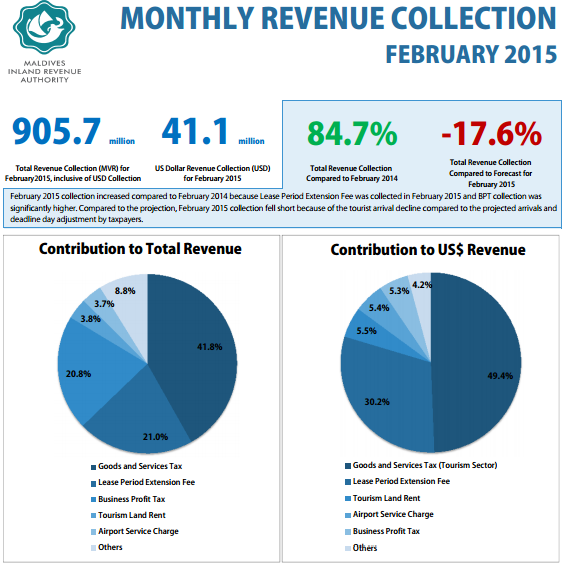Former President Mohamed Nasheed, sentenced to 13 years in jail in a trial many observers have called a travesty of justice, has issued a statement wishing mercy on his jailers.
“In this time of profound injustice, I harbour no hatred. And to those who seek to destroy me, I say: I wish upon you good grace and blessings,” the opposition leader said last night.
Nasheed was convicted of ordering the January 2012 military detention of Criminal Court Chief Judge Abdulla Mohamed.
The United States, United Kingdom and the European Union have expressed concern with the lack of due process, while Amnesty International said Nasheed’s sentencing “after a deeply flawed and politically motivated trial is a travesty of justice.”
The Criminal Court denied Nasheed bail on February 23 at a first hearing without legal representation. The three-judge panel at subsequent hearings dismissed Nasheed’s repeated requests for additional time to prepare a defence and refused to call the defence’s witnesses claiming they do not appear to negate the prosecution’s evidence.
The three-judge panel also included two judges who had acted as witnesses in an earlier investigation into Judge Abdulla’s arrest.
In his statement, Nasheed called for mass protests against President Abdulla Yameen’s regime and appealed to supporters to remain courageous and strong.
“The Maldivian judiciary is full of corruption and disgrace. Judges are routinely accepting the vile money of bribery. These judges have no fear of the day of judgment, and no shame in this world. The consequence of their actions is injustice to the public and the thwarting of this country’s development,” the former president said.
Nasheed was the Maldives’ first democratically elected president.
“Why am I calling for such a sacrifice? Know this for sure: it is not for my own well being . I am not staying in jail, a captive, because I have no way out. I could easily secure my freedom and happiness by agreeing to stop the work I am doing, and falling at President Yameen’s feet. I could choose to live in riches, in comfort, and in joy. But if I choose that path, Maldivians will reach a tragic end. Maldivians will be deprived of what they rightfully deserve: freedom, dignity and democracy. They will never be allowed to stand tall. Forever, they will be forced to cower before this dictatorial regime.
Judge Abdulla’s arrest sparked 22 consecutive nights of violent anti-government demonstrations that culminated in a police and military mutiny on the morning of February 7, 2012, forcing Nasheed to resign in what he subsequently called a “coup d’etat.”
Delivering the guilty verdict, Judge Abdulla Didi said the prosecution’s evidence proved beyond reasonable doubt that Nasheed as commander-in-chief ordered the arrest or “forceful abduction” of Judge Abdulla.
When provided with the opportunity to present concluding statements at an initial hearing at 9:15pm, Nasheed once again asked for legal counsel and additional time.
“My incarceration in Dhoonidhoo Jail prevents me from communicating with my lawyers. They are unable to provide me with the legal counsel I require. They were not provided with the prosecution’s evidence for review, adequate means for communication, or internet services. There were no arrangements for us to sit together to prepare legal documents,” he told the court.
“My lawyers quit, because they were unable to afford me the legal counsel necessary for a free and fair trial. They quit stating that the three of you judges are unjust in how you conduct this trial. In this situation, I am unable to prepare concluding statements. I can only prepare such a statement only when I am freed from this situation, if I am transferred to Malé and given sufficient time for preparation.”
However, reading out the guilty verdict at 11:15pm, presiding Judge Abdulla Didi insisted Nasheed had been afforded adequate to prepare defence, arguing case documents had been provided three years ago when the former president was initially charged.
Nasheed was first charged in 2012 with arbitrary detention under article 81 of the penal code, which carries either banishment or a jail term of up to three years.
On February 15, Prosecutor General Muhthaz Muhsin withdrew the charges filed at the Hulhumalé Magistrate Court. Nasheed was arrested on February 22 shortly after the PG filed terrorism charges at the Criminal Court.
Judge Didi also said Nasheed had refused to make use of a phone call to appoint new lawyers when all four of his lawyers quit.
President’s Office Spokesperson Ibrahim Muaz Ali today said the government will ensure former President Mohamed Nasheed’s right to appeal his conviction on terrorism charges if he believes the Criminal Court did not follow due process.
Related to this story
Government will ensure Nasheed’s right to appeal conviction, says spokesperson
Former President Nasheed found guilty of terrorism, sentenced to 13 years in prison
Nasheed trial “not free or fair,” says Maldivian Democracy Network
Foreigners cannot meddle in domestic affairs, declares President Yameen
PPM accuses international community of “double standards and hypocrisy” in Nasheed’s trial
“This is not a court of law. This is injustice,” Nasheed tells the Criminal Court


